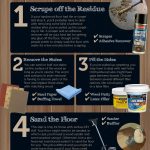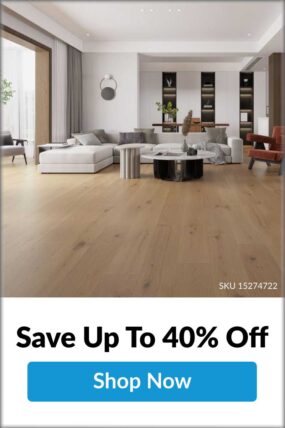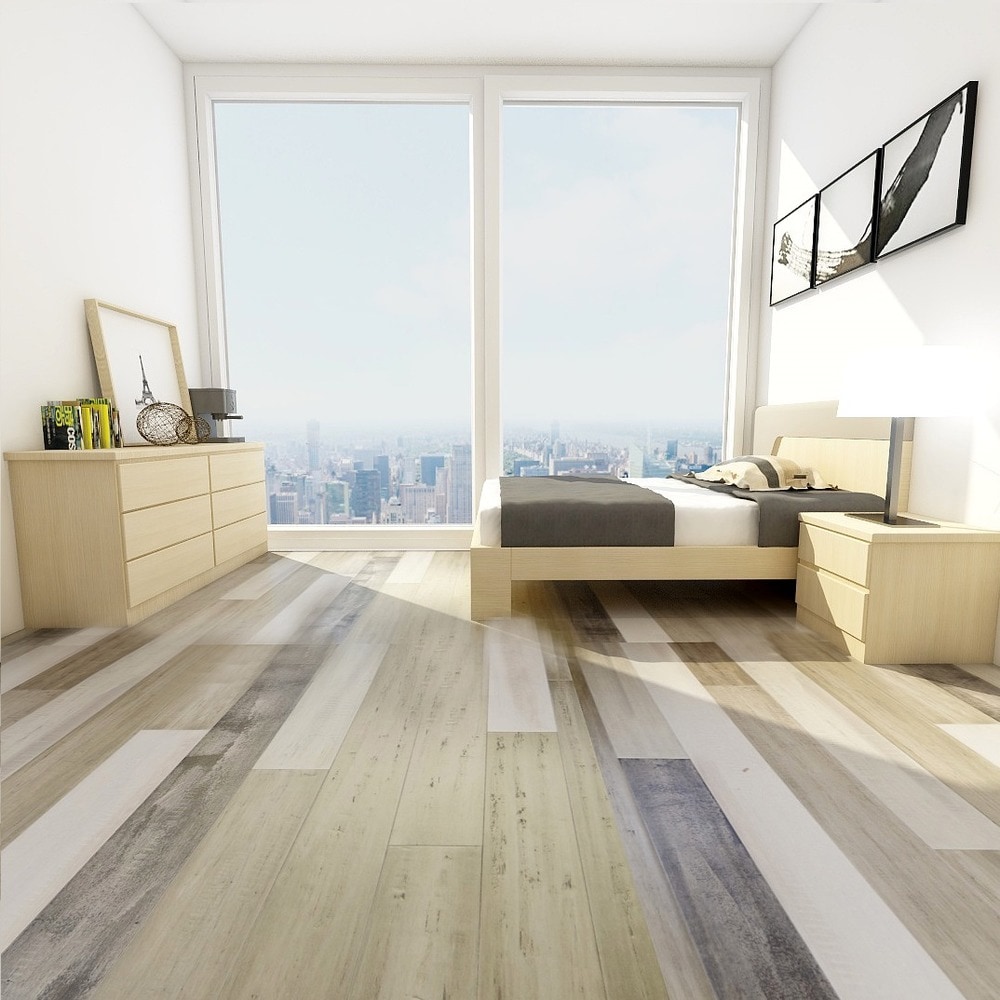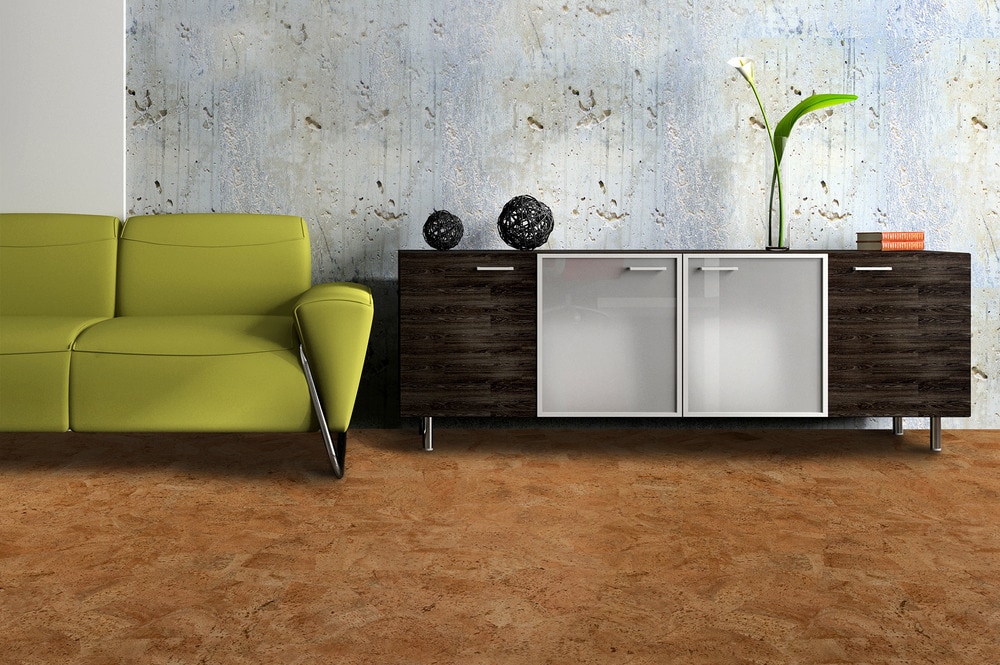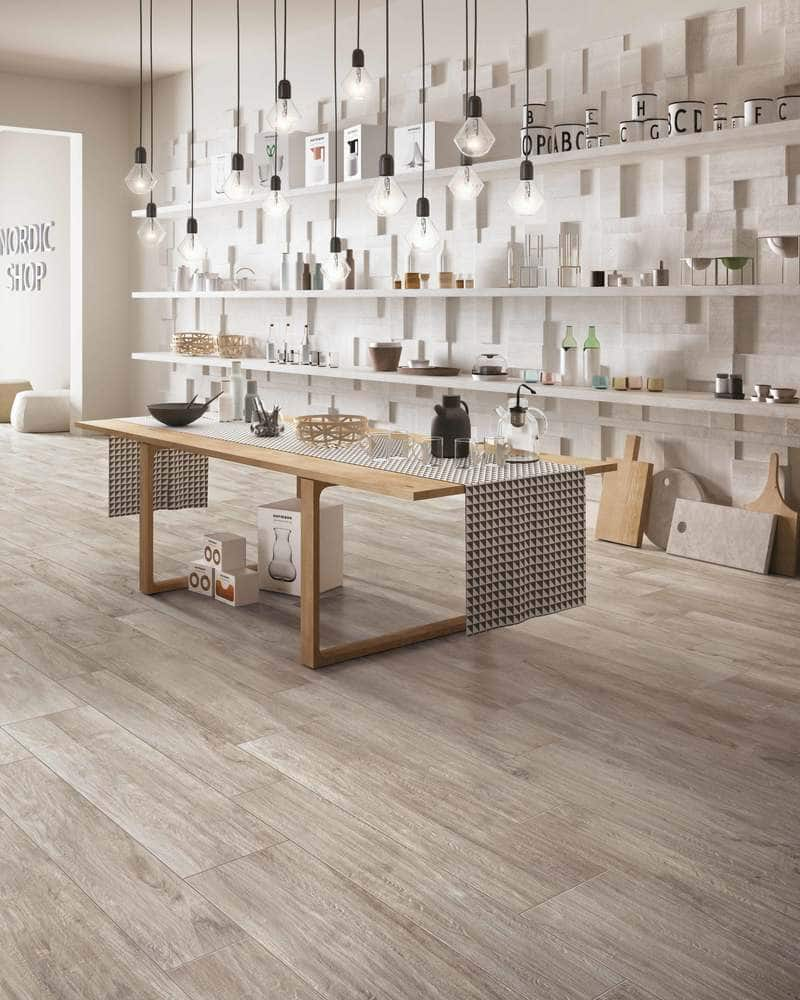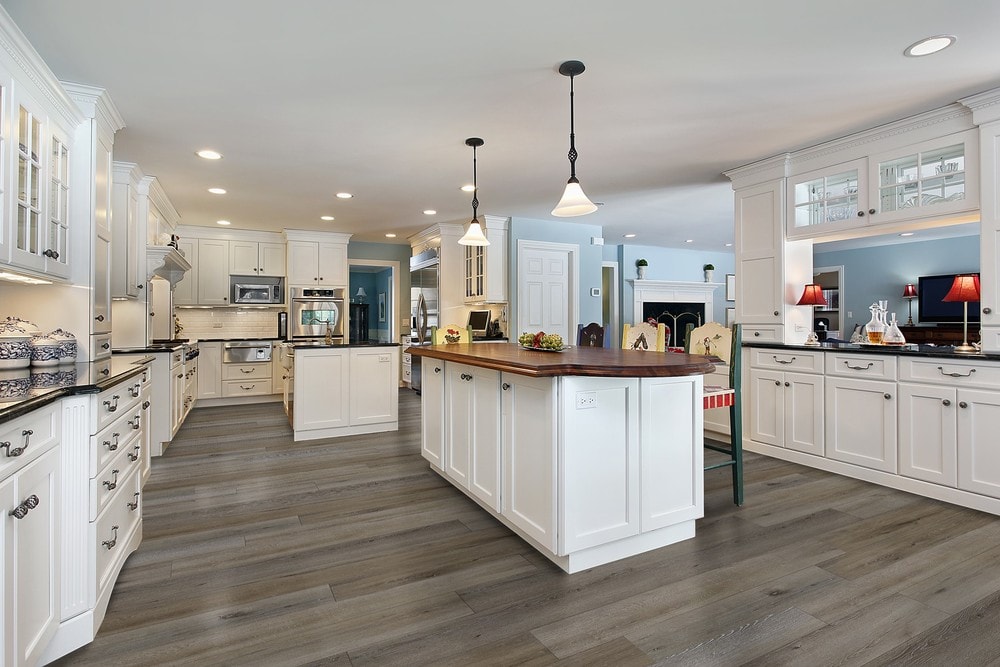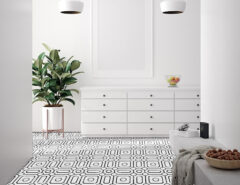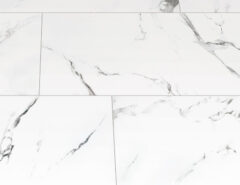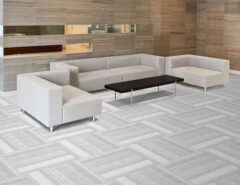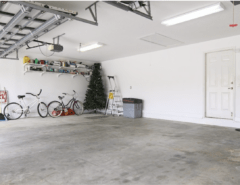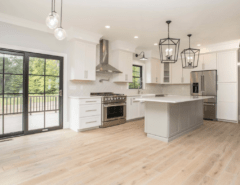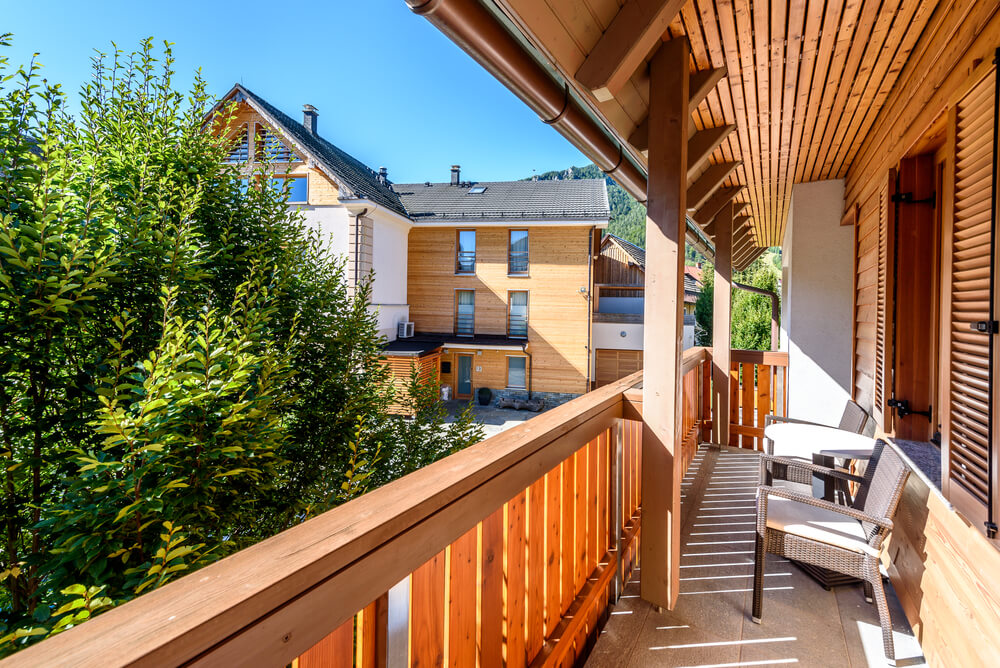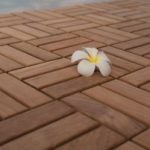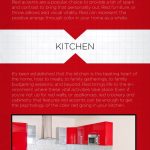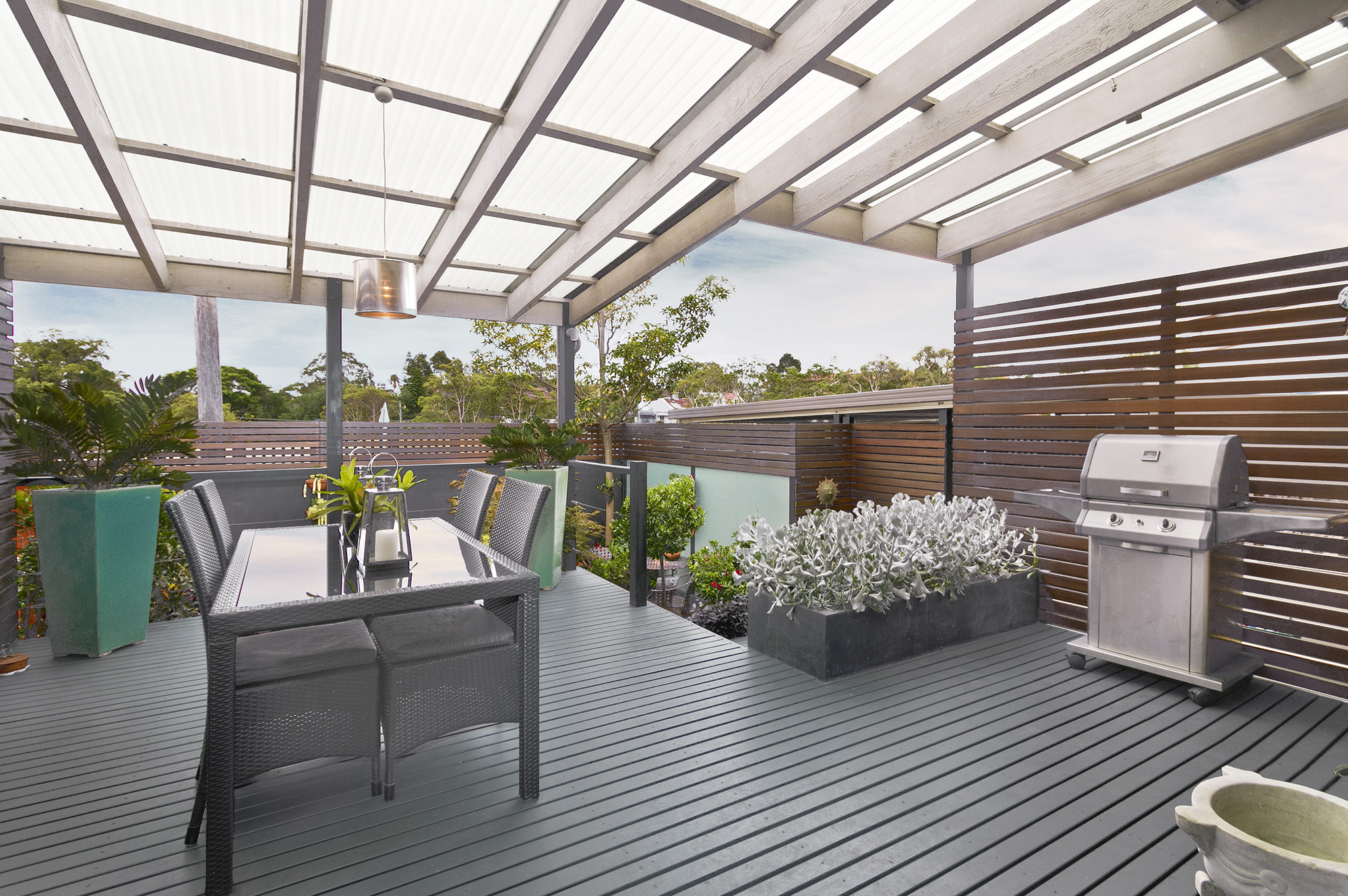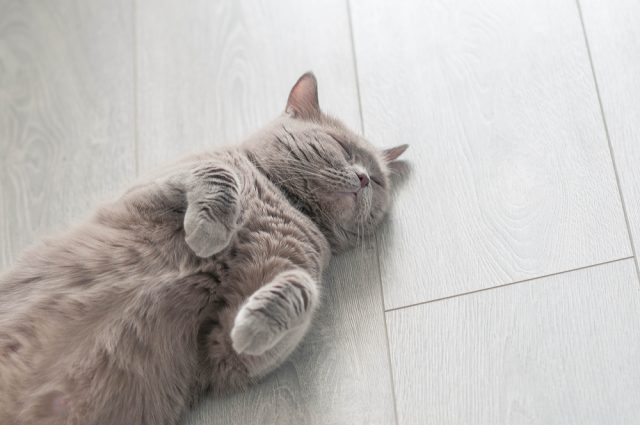
June fourth is National Hug Your Cat Day, as if you needed an excuse to cuddle with your favorite kitty. But cats aren’t all cupcakes and rainbows. They can really do a number on your flooring, from claw marks to body fluids, fur, and dander. Here, then, are your best options when it comes to feline-friendly flooring.
Five Fantastic Floors for Felines
Choosing cat-friendly flooring will help you keep your home clean and in tip-top shape. Each of these flooring types have pros and cons, but they’re all great for cat owners.
1. Bamboo is Paw-Some
Bamboo flooring is ideal for cat homes, because it’s stain-resistant and harder than hardwood, even though it’s actually a grass. Vertical bamboo planks have a uniform, striped appearance, while horizontal planks feature the knuckles in the grain that most people associate with bamboo.
Bamboo is naturally light in color, but it can be darkened through a process called carbonization. However, carbonization softens the floor slightly, making natural bamboo a better choice for people with cats.
Bamboo costs anywhere from $5 to $8 per square foot, similar to other hardwood flooring, and installing it requires gluing it or nailing it down to a subfloor. Professional installation costs another $3 to $5 per square foot.
Pros of bamboo floors for cat owners: Bamboo flooring is extremely durable, and you can clean it with water and mild soap. Natural bamboo planks can be refinished like hardwood floors. Laminated bamboo flooring can’t be refinished, but installing it can be a fairly simple DIY project.
Cons of bamboo floors for cat owners: Inexpensive bamboo flooring is susceptible to scratches from kitty claws and other wear, but higher quality bamboo can be prohibitively expensive. While bamboo flooring is generally water resistant, it can become damaged if excessive water (or cat urine) is allowed to soak into the planks.
2. Cork Isn’t Claw-ful
Cork flooring has become a popular choice in recent years, even though it’s been around for decades. Cork comes from the bark of the cork oak tree, and it’s harvested from the living tree, which grows another layer, making cork highly renewable. To make cork flooring, the cork oak bark is ground up, combined with resins, and pressed into sheets. The resulting floor is soft and cushiony under foot.
Cork flooring costs between $5 and $14 per square foot and comes in planks or tiles that are typically one-third to one-half inch thick. Installation adds about $2 per square foot to the cost of the floor.
Pros of cork floors for cat owners: Cork has a unique look, and it’s easy to take care of. The natural holes in the pressed cork help hide any damage a cat may do to the floor. However, a large dog may do some visible damage. Cork can be refinished like hardwood. It’s hypoallergenic, and it has natural antimicrobial properties. It also absorbs sound, which is great for those whose cats love to tear through the house and flop dramatically around on the floors.
Cons of cork floors for cat owners: Although cork floors are sealed, intense exposure to moisture can damage them. If your cat is particularly active with its claws, a cork floor may not be for you.
3. Purr-haps Tile?
Tile floors come in an endless variety of finishes, colors, textures, and designs. They’re easy to install, and they’re practically indestructible.
Pros of tile floors for cat owners: There is no way your cat is going to damage a tile floor. Tile is waterproof, scratch-proof, stain-proof, and super easy to clean.
Cons of tile floors for cat owners: Your feline furball probably won’t find tile very cozy to lounge around on. Tile floors stay fairly cool, so if you live in an area that experiences winter, you may want to consider installing radiant heating under the tiles.
4. Luxury Vinyl – Are You Kitten Me
Luxury vinyl flooring mimics the look of natural hardwood or stone, but it’s far less expensive and super durable. Luxury vinyl flooring can cost anywhere from $3 to $7 per square foot, with the highest quality of vinyl costing far less than the highest quality of hardwood or laminate. The lower-priced luxury vinyls are water resistant, while the more expensive versions are waterproof and more durable.
Pros of luxury vinyl for cat owners: Quality luxury vinyl floors are waterproof and scratch-proof, and they offer myriad options for color, texture, and plank or tile size. They’re easy for an experienced DIYer to install, and they’re very durable.
Cons of luxury vinyl for cat owners: Luxury vinyl floors off-gas VOCs, which may affect your cat’s respiratory system, especially if Whiskers has a respiratory problem. You can’t refinish luxury vinyl, so if it’s damaged, it will need to be replaced.
5. Laminate… Litter-ally
If you love the look of hardwood but don’t love the cost or upkeep, laminate flooring might be just the thing for your cat-friendly home. Laminate looks like hardwood, but it’s more stain- and scratch-resistant. It’s made from composite wood that’s pressed together at high temperatures. A hyper-realistic image of wood is then glued over the composite. Laminate floors cost between $2 and $8 per square foot, and installation is around half the cost of installing hardwood floors.
Pros of laminate floors for cat owners: Laminate is resistant to scratches, moisture, and general wear and tear. It’s very easy to clean and maintain, and installing it can be a DIY project for handy people.
Cons of laminate floors for cat owners: While laminate floors are far more durable than hardwood, they’re not the real deal, and are therefore not as visually pleasing. The higher the quality of the laminate, the more closely it’ll resemble natural hardwood.
Floors to Avoid at All Costs if You Have a Cat
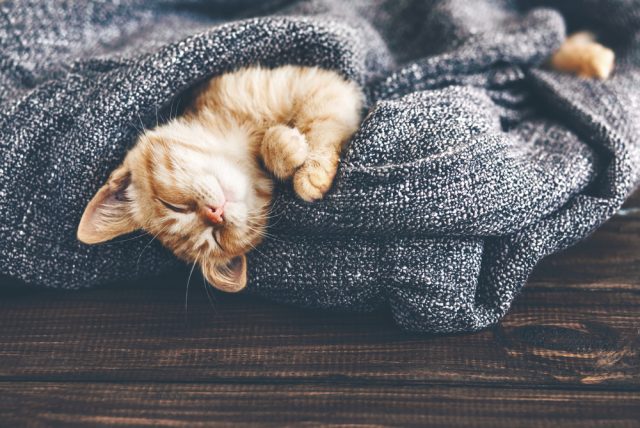
Cat-friendly flooring options don’t end with the five we’ve presented, but there are some floors that would be cat-astrophic with your felines. The first is carpet. Carpeting is a nightmare when it comes to cleaning up cat messes, thanks to the pad and underlayment beneath it, which acts as a sponge, absorbing liquid and odors. Carpet also attracts fur and dander, making your home an allergen magnet. Washable area rugs are a good solution if you’re looking for noise control or comfort.
While hardwood isn’t as bad as carpet, it’s very porous and can absorb moisture, especially between the boards. It also scratches easily, and although it can be refinished, wood floor restoration can get mightily expensive.
Choosing a cat-friendly flooring option keeps your home looking and smelling great, and it can reduce the anxiety you may feel about your ferocious beast’s fierce claws. Rawr!



